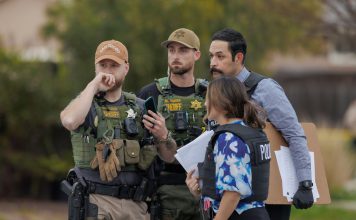Gilroy overtime costs for firefighters are on track to set
another record for the fiscal year nearing $900,000 a year
Gilroy – Overtime paid to Gilroy’s firefighters has surged during the past two years, topping $600,000 in the last fiscal year. If the trend continues through summer, the department will dramatically exceed this year’s overtime budget, spilling over by more than 80 percent.
In six months, Gilroy firefighters earned more than 90 of the overtime budgeted for this fiscal year, a sum of $441,090. If overtime earnings continue at the same pace, the city will pay more than $880,000 in firefighter overtime this fiscal year – more than $400,000 over its $481,010 overtime budget – and the average firefighter will earn $22,054 in overtime. Gilroy firefighters earn a minimum salary of $70,000 per year, according to the city’s Web site.
City officials aren’t surprised. The short-staffed department has been filling in for five vacant positions, after two firefighters left for San Jose late last year. Mandatory staffing requirements – and safety concerns – mean that leaving the spots vacant isn’t an option.
“We’re getting hit because of the open positions,” said city administrator Jay Baksa, who estimated that plugging the open spots made up 12 percent of the fire department’s overtime. “That’s unique to this year.”
By July, the department will likely exceed its budgeted overtime, he said, but with five salaries left unpaid, this year’s budget should come out even. With benefits and training, a new employee costs roughly one-and-a-half times as much as an existing employee – the same as another firefighter working overtime, at time-and-a-half, to fill their spot.
Another factor in increased overtime is training, Baksa said. As the fire industry has shifted from dousing flames to rescuing patients, firefighters require more and more training, for which they receive overtime pay.
“There is no frivolous overtime,” said fire chief Dale Foster. By balancing overtime with relief positions, he added, the city has avoided overusing its staff. “It’s what we have to do, to get the job done.”
Foster and Baksa offered similar explanations in 2005, when the Dispatch last reported on firefighter overtime. At that time, the budget looked bleak. Suggested cutbacks included a five-year hiring freeze and closing the senior and youth centers. In an April 2005 interview, Mayor Al Pinheiro remarked, “We need to cut back. It means being realistic.”
Attempts to staff the Sunrise Station in northwest Gilroy haven’t contributed to the overtime figures, said Baksa. The station is equipped with a fire engine but has often been unable to staff it, leaving the station’s firefighters with a waterless rescue rig. The unexpected departures of two Gilroy firefighters delayed Sunrise’s engine-that-could from rolling into action full time, though Baksa and Foster said the department has been able to staff the engine a few days a week, using relief positions instead of overtime.
The department hopes to end its staffing woes by summer. Nearly a dozen candidates are being screened for summer hiring, said Foster. The new hires will cause an initial bump in overtime: While new firefighters go through three- or four-week trainings, other firefighters have to fill their spots.
Within the department, the firefighters’ union is reviewing who gets offered overtime, and how. Foster said the current systems operates on seniority, and offers overtime only within the same station. Union representatives are working out a more equitable system, he said, and putting together a proposal. The change isn’t expected to affect the amount of fire overtime, Foster added, just who gets it.
Emily Alpert covers public safety issues for the Dispatch. She can be reached at 847-7158, or at ea*****@************ch.com.











